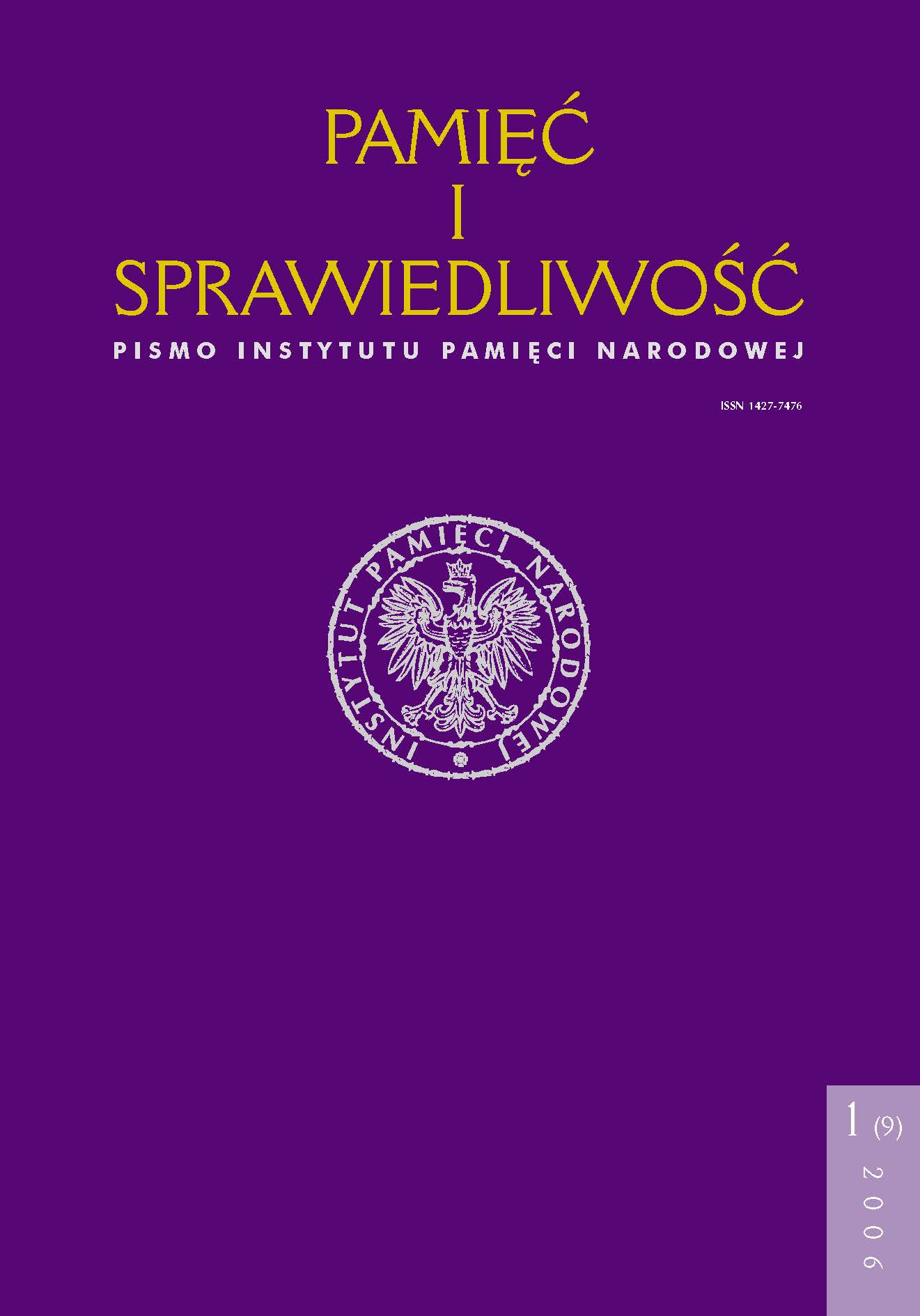Sowiecki partyzant – polski problem
Pamięć i Sprawiedliwość, V. 9 N. 1 (2006), pages: 217-254
Publication date: 2006-06-30
Abstract
In the years 1941–1944 the Home Army, the representation of the government of Polish Republic for the country, and Polish government in London had to face the problem of Soviet guerrilla troops on occupied Polish land. The Polish government didn’t agree to carry out their own diversion action on such a scale that the Soviets expected from them. The Soviet guerrilla troops were not also welcome on Polish land because there wasn’t permission of Polish authorities for their activity. Moreover, they were accused that their activity caused German repression and quite often was a pure robbery.
However, it was the reason of certain difficulties in the foreign policy of Polish government in exile. Sikorski’s job was to reconcile Soviet expectations, often supported by Western allies, with protection of Polish affairs. It was the reason, although a part of Polish politicians both in London and at home were in favour of military actions against Soviet guerrillas, that Sikorski was against giving such an order. The Polish government was aware that the argument about performing diversion activity without host’s permission also referred to Polish diversion on Soviet area and the argument about involving German repression – also Home Army guerrillas on truly Polish land.
The charge that Soviet guerrilla troops committed robbery can be denied by the argument that Polish underground didn’t get provision for them. Besides the Soviets thought that performing diversion they had the right to do confiscation and they did not
acknowledge that they could be killed as bandits.
It seems that the attitude to the guerrillas was mainly caused by the fear of Sovietization of the country. This threat was obscured by the fact that there were also ordinary Soviet soldiers in the Soviet troops, e.g. escapee war prisoners, as well as Jews and members of the social or national groups that were persecuted. The attitude of Soviet government towards Home Army guerrillas had also political roots. The action „Storm” showed that the Polish concerns connected with the political evaluation of the Soviets were justified.
Puoi leggere altri articoli dello stesso autore/i
- Adam Puławski, Wykluczenie czy samowykluczenie? Trzy aspekty obecności Żydów w wojennymm społeczeństwie polskim na przykładzie 1942 roku , Pamięć i Sprawiedliwość: V. 12 N. 1 (2008)
- Adam Puławski, Postrzeganie żydowskich oddziałów partyzanckich przez Armię Krajową i Delegaturę Rządu RP na Kraj , Pamięć i Sprawiedliwość: V. 4 N. 2 (2003)
- Adam Puławski, „6 tys. [Żydów] co dzień” – „oczywiście na stracenie”. Opowieść o pierwszej depeszy Polskiego Państwa Podziemnego na temat Wielkiej Akcji w getcie warszawskim , Pamięć i Sprawiedliwość: V. 29 N. 1 (2017)
 Język Polski
Język Polski
 English
English
 Deutsch
Deutsch
 Français (France)
Français (France)
 Italiano
Italiano
 Русский
Русский


 PDF (Język Polski)
PDF (Język Polski)
